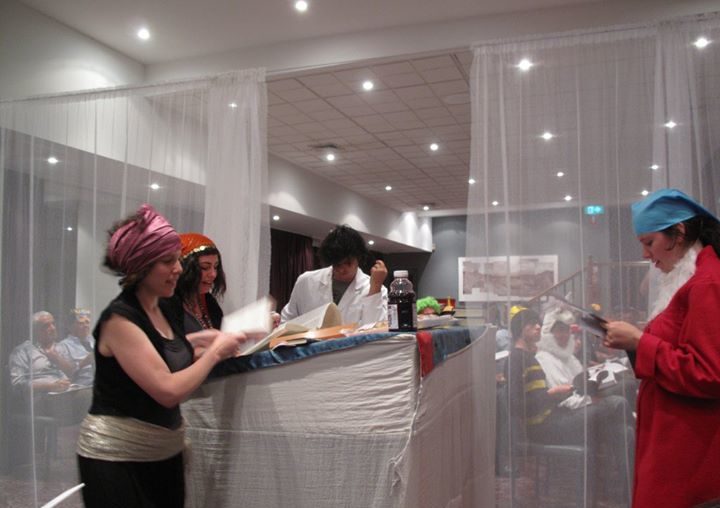My father’s yorzeit was three days before Pesach, two weeks into the lockdown here in Victoria. With religious services shut down, I couldn’t be at my shul, Shira Hadasha, to say kaddish. I couldn’t gather with my usual community to mark this moment of personal remembrance. But I was fortunate. I was able to say kaddish in the presence of an online minyan, a view endorsed by a small number of reputable Orthodox experts. It was part of an online evening service on a Saturday night, following online Havdalah to mark the end of Shabbat. It was not the same as saying kaddish in a real life community, but I was grateful that I still had that opportunity.
Like communities across the globe, we are looking for ways to feel socially connected, while maintaining physical distance. Like shul communities across the globe, we are looking for ways to mark Jewish time despite the physical distance. As an orthodox community, we don’t use technology on Shabbat or Chag. On those days when we normally immerse ourselves in community, we feel sharply our disconnection from each other. We miss gathering. We miss shul. As one of our members wrote to me: What is Shabbat, Chagim and Jewish life without friends, hosting and community?
At 9am last Friday morning, I was part of a group from my shul who gathered on Zoom to sing Hallel, in praise of the new month of Iyar. This event took place with each of us singing on mute in our own bubble, listening online only to the beautiful voices from one household. I miss the joy of singing together, but gathering is impossible and singing together through an online meeting space results in an out of sync cacophony, not an uplifting spiritual experience. So on this Friday the heavenly voices which had more than one of us undone, were those of Avram and Yael Mlotek, and their 7-year old daughter, Revi, in New York. Before they began, we watched them join others across New York to perform their evening ritual of cheering the essential workers.
At 4.45pm, on Friday afternoon, our shul held its weekly Kabbalat Shabbat service on Zoom. Everyone was muted except one of our members, “stranded” in Byron Bay, who led the service until Shabbat was coming in there and someone in Melbourne took over. These Friday bookend Zoom gatherings are just two of the many online events our shul has already held in the weeks since we closed our doors on regular services.
The absence of a physical shul community has reinforced my love of that community. A place of comfort and warmth, support and kindness, Shira is part of my sense of home. I miss the social connection with people of all ages who are a ritualised part of my week. I miss the whispers in shul, the side conversations, the bimah business, the delicious drashot, the schmoozing at kiddush. Approaching Pesach, I felt bereft at the idea of there being no shul over the many days of Chag.
Still, sorrow at the absence of shul feels indulgent when the whole world is shut down and millions of people have already lost so much more: jobs, livelihoods, homes, lives. We have much to be grateful for. But sorrow at what we’re missing is a normal response. An article that has been widely shared, “That Discomfort You’re Feeling Is Grief”, is a conversation between the author Scott Berinato and grief expert David Kessler, centred on understanding what we are feeling. Kessler’s description of the grief we are experiencing at what we’ve lost and at the uncertainty of what is to come helped me understand my own feelings—the grief and … the gratitude.
I am grateful that we live in this place and this time, where we can gather virtually and see each other on screen. I am grateful that our community can magically reconnect with far-flung friends, like Avram and Yael—our guest cantors in previous years for High Holydays. That gratitude continues to counter – in part – my grief.
And so, in the uncertainty of the present, I swing between gratitude for what I have and grief at what I’ve lost, appreciation for life as it is and anxiety at what life might look like “on the other side”. I am certain, though, that for as long as we can’t gather in person, we will look for new ways to imagine our virtual community in prayer, word and song.


Comments are closed.